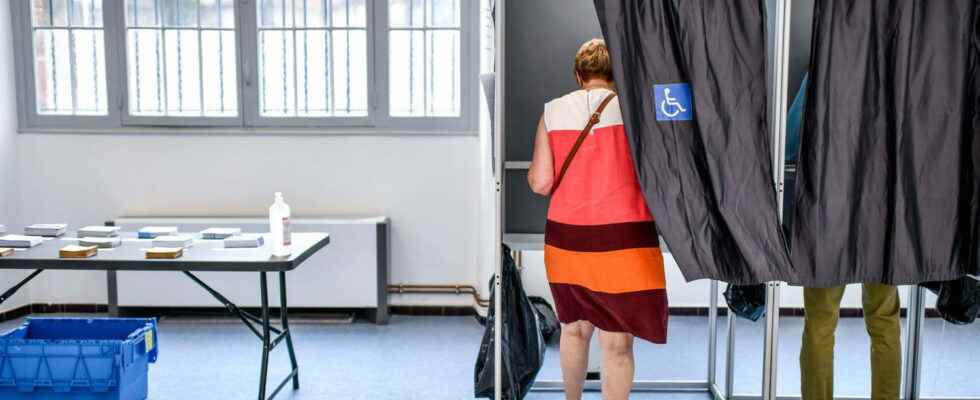LEGISLATIVE ELECTIONS RULES. This Sunday, June 19, it is the 2nd round of the legislative elections. Only two candidates are qualified in a large majority of the 577 constituencies but there may be exceptions! Here is everything you need to know about this second round.
Look for a legislative result near you
[Mis à jour le 19 juin à 18h20] These legislative elections 2022, which will end at the end of the second round this Sunday, June 19, will be used to form the new National Assembly, composed of 577 deputies representing as many French constituencies, in mainland France as in Overseas or to represent French people living abroad. . Each MP is elected for a five-year term, with the next legislative elections therefore scheduled for 2027.
They could be advanced in one case, if the President of the Republic Emmanuel Macron were to decide during his term of office to announce the dissolution of the National Assembly, a prerogative reserved for the President of the Republic in the Constitution of the 5th Republic. The last dissolution dates back to 1997 and was carried out by Jacques Chirac, who had lost his majority there and had been forced to cohabit with the left, the leader of the PS Lionel Jospin being appointed to Matignon.
8 triangles this Sunday
In most constituencies, there will be two candidates facing each other, but these legislative elections will also reserve a few rare triangular candidates, candidates having managed to obtain a number of votes equal to 12.5% of registered voters. According to the results of the first round, 8 triangular, 2nd rounds where we find three candidates face to face, will be organized on June 19th. In five constituencies out of the 8 triangular, there will be three candidates from matches between candidates from Ensemble, Nupes and RN. Qualified candidates have until Tuesday, June 14 to submit their application again to the prefecture. They will then officially participate in the 2nd round, which will take place on Sunday, June 19.
How many electors represent a deputy?
Since the electoral boundary law of February 24, 2010, the distribution of seats has been modified. From now on, a so-called distribution by population bracket is carried out. A constituency thus has 125,000 inhabitants. One MP therefore represents 125,000 inhabitants, with one additional MP being added for every 125,000 inhabitants. Departments with less than 125,000 inhabitants have only one deputy, unlike departments with larger populations. This is why the Creuse has only one deputy when the Bouches du Rhône, for example, has 16.
A perfect equality between two candidates is rather rare…
But be aware that the Electoral Code has obviously provided for this eventuality. In the case of a first round, a tie would have no consequences, the candidates joining the second round if they meet the other conditions (collect in votes the equivalent of 12.5% of the registered). However, what happens in the event of a tie in the second round? In this case, the National Assembly will not welcome one more deputy, the number of deputies remaining fixed at 577. Nor is there any question of sharing one’s seat! The electoral code specifies that in the event of a perfect tie in the second round, it is the older candidate of the two who is elected. Bonus for seniors…
Elected in the first round
Only five candidates managed to be elected on Sunday June 12 in the first round of the legislative elections: Alexis Corbière in Seine-Saint-Denis, Sarah Legrain, Danielle Obono and Sophia Chikirou in Paris, all four under the banner of Nupes and Yannick Favennec, outgoing deputy returned to Mayenne under the banner of the group for the presidential majority, Together! For everyone else, the first round was either synonymous with elimination or qualification for the second round.
To be elected in this first round, it was indeed necessary to collect the absolute majority of the votes cast (more than 50%) but also and above all to win a number of votes equal to a quarter of the registered voters (25%). Everywhere else, a second round will therefore be organised. The rules are obviously not the same in the second round where only obtaining a relative majority is enough. Simply put, the candidate with the most votes is elected!
